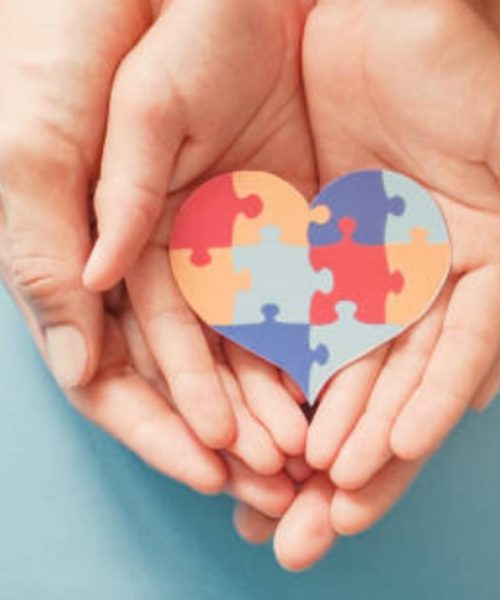By Beth Ward, The Atlanta Journal-Constitution
Troy Warren for CNT #Health
It’s that time of year again — a time when commercials and storefronts declare that all is merry and bright, when the whole world seems to twinkle and glitter in happy anticipation of the holidays.
But for some, the holiday season isn’t always so fun and festive.
A 2014 survey of approximately 300 people conducted by the National Alliance on Mental Illness found that 64% of people with mental illness feel the holiday season makes their conditions worse. And those with no official mental health diagnosis can struggle as well. This time of year can bring up feelings of grief, loneliness and social anxiety for many. And the never-ending to-do lists, the added shopping, cooking, decorating and hosting can all contribute to feelings of increased stress.
“The holidays are a time of year that come with high levels of expectation, and our lives are busier than ever,” says Rebecca Jackson, a board certified cognitive specialist and vice president of programs and outcomes at Brain Balance. “There are additional demands on our finances, our time and our abilities to plan and execute. Added to the anticipation and expectations of this time of year are changes to eating, schedules and routine. The result is often a heightened state of stress and exhaustion, which will amplify feelings of anxiety.”
An important part of coping with these struggles is being able to recognize when stress levels are starting to rise. According to Dr. Jackson, feelings of fatigue, an increased urge to procrastinate and feelings of volatility can all be signs of increasing anxiety. Trouble sleeping, putting off plans and feelings of agitation are also signs of overwhelm.
If these signs and symptoms do begin to impact a person’s ability to enjoy the holiday, or their overall sense of mental health, Jackson recommends these helpful strategies:
Know your limits
“We all have a threshold when our tolerance for chaos or busy environments is reached,” says Jackson. “When considering holiday gatherings, parties or shopping at the mall, consider how you feel and function in these situations. Go into each situation with a plan, including how long you plan to stay and how you can gracefully exit early. Don’t over-plan or over-stretch your time or schedule. Give yourself more than enough time to accomplish your to-do list, breaking it up into separate pieces when needed.”
Maintain a consistent sleep schedule
Restful sleep is a key component in stress management, says Jackson.
“Keeping to a consistent routine of waking up and going to sleep at similar times each day, being mindful of increasing light and physical activity in the morning and minimizing that light and activity at night — including the light from television, phones and other devices — can help trigger your body’s sleep and wake cycles, setting you up for quality rest and relaxation. When you are well-rested, your brain is better equipped to handle life’s challenges, its more stressful or overwhelming moments.”
Be mindful of how food and alcohol consumption impacts your mood and energy
“Many foods impact us in positive ways, and others have a more negative impact,” says Jackson. “For example, consistent protein and healthy fats throughout the day can both help to maintain a consistent mood, while sugars and alcohol can result in a decrease in your ability to stay focused and stress-free.”
Pay attention to how you feel after consuming higher-than-normal levels of sugars and alcohol in the hours after you consume them, she says, and plan in advance what is best for you to eat and drink to set yourself up for feeling and functioning at your best.
Note that planning is key to success during such a busy time of year
According to Jackson, loading up your social calendar, and then succumbing to procrastination, can increase stress and anxiety. Instead, she recommends “creating your to-do list, then mapping those tasks out on the calendar. It gives you a proactive plan to mitigate last-minute stress. On your to-do list, consider your social engagements, gifts, events and schedule. Maintaining a routine with sleep, nutrition, exercise will also help you embrace the fun and chaos of the festivities of the holidays with a minimal impact on your stress and anxiety.”
Set boundaries
Jackson also recommends being honest and direct in setting expectations, and establishing a plan up-front so that you are not left worrying and wondering. For example, when trying to field an event invite, Jackson suggests saying something like the following as a way to set a boundary: ‘I’m glad you included me in your holiday celebration! I’m working to balance my stress levels during this busy season and am trying to not overcommit myself this time of year. I’d love to join, but want to be sure it’s ok with you if I don’t stay late!’
Of course, there is a difference between holiday-related stress and a more serious mental health concern.
“If anxiety reaches a point of interfering with your life, it is time to take a deeper look and ask for help,” says Jackson. “Whether that interference is with relationships, performance at work, or your thoughts and actions, there are many resources for help and support. You don’t need to weather these challenges without help and support.”
In Other NEWS




































